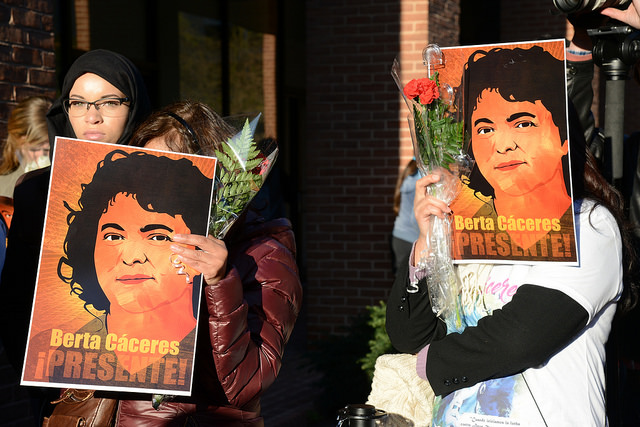Tai Members
Associated Rights
Photo Credit: Daniel Cima
How did the Escazu Convention come about?
The Escazu convention is a direct outcome from the Rio +20 Process, the United Nations Sustainable Development Conference where the outcome document “the future we want” acknowledged the importance of Principle 10 of the Rio Declaration and that democracy, good governance and rule of law was fundamental to sustainable development. The outcome document encouraged action at international, regional and domestic levels to make this happen. Ten Countries from the Latin American and Caribbean region at the Conference signed a Declaration to begin a process to ensure the full implementation of access rights and launch a process to adopt a regional instrument which could amount to guidelines or a legally binding agreement with the Support of ECLAC.
What role did WRI and The Access Initiative play in this process?
The Access Initiative, which WRI serves as the Secretariat of was instrumental in driving the process to the adoption of the Principle 10 Declaration and the Escazu Convention. The idea to use the Rio+20 process to seek to gain a regional agreement on Principle 10 originated from the Uganda Global Gathering of the Access Initiative. It was determined that we could galvanize the network to create demands in country for a regional agreement on principle 10 through a 3 demands campaign. Members were requested to attend local consultations and request their governments to include this within submission processes to a specific action on Principle 10, global or regional convention as a Rio+20 as outcome. The Access initiative created and made official submissions to this effect. The Governments of Chile and Jamaica based on TAI partner submission agreed to include this as one of the outcomes of the Rio+20 process. The TAI secretariat attended all the international Rio+20 meetings and lobbied Governments with partners to have the Declaration signed at Rio. In Brazil a call for action was released by the network. The declaration issued from the Governments in Rio began a process of action for international meetings to support the process. While many lamented the outcomes from Rio+20 we celebrated as a network. When the international process of negotiations began, members of the TAI network were all elected as representatives of the public in the process to coordinate civil society participation in the process, they coordinated the engagement on all submissions to the government, led oral submissions in meetings and prior to meetings and also worked on capacity building to improve submissions from civil society in the negotiations WRI Secretariat supported all of this work.
TAI members participated at all stages of the negotiations process across the 6 years of development of the instrument with a focus on our regional network in LAC and we influenced each part of the process including , the development of the plan of action, Lima vision and rules of public participation of the meetings. Submissions were made for all of these documents to ensure that the public could participate significantly in the meetings, be consulted as part of the co-presidency and engage actively in working groups. TAI was successful at having some of the most liberal rules on participation for members of the public from the region. TAI drove the process of extending outreach to new governments including through international meetings , direct outreach and advocacy. TAI fundraised for money to be provided across the network through an OSF grant to support awareness and advocacy for the agreement, and to bring more Caribbean countries into the process holding multiple workshops including in Trinidad and Tobago Jamaica and St. Lucia for Caribbean countries to engage and get involved in the regional Principle 10 negotiations. Our participation at negotiation meetings was perhaps the most significant with constructive engagement on language, principles and concepts. We held also side events, wrote blogs and did public awareness campaigns and wrote publications to support thematic issues including on environmental defenders supporting their participation at meetings..
The main objective of the agreement is found in Article 1 which is to ensure the full implementation of Principle 10 of the Rio Declaration and the creation of capacities and contribution to ensure present and future generations can live in a healthy planet.
